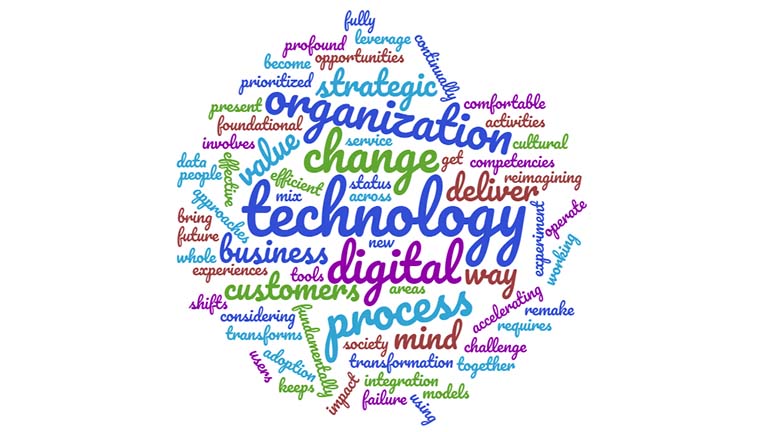Why Digital Transformation is Hard
Receive free IIBA updates and exclusive content!

I'll start by saying, one of the key activities in my role as a business analyst is ensuring everybody has a common understanding of what's going on. What words are we all using, and what do we mean by them?
I've been reading quite a bit about how digital transformation activities are "failing". I've got a suggestion for why that is: while we all know what we individually mean when we say, "digital transformation", few of us have a common meaning for the term.
Is it about technology, the customer, the staff providing the service, or "something else"? The answer is it depends on who you ask.
I went looking for definitions. There isn't a lot in common. It's either absolutely about technology (technology vendors leading the way on this one), or positively not about technology (more leadership focussed organisations holding this view) - or the middle ground that you can't do it without bringing your technology along as the thing to change, to get people to change.
My bunch of quotes is summarised in the word cloud below:

Why is it hard then?
It's hard because as is often the case, people speaking know what they mean, but people listening to them are translating what they are hearing incorrectly.
As you move further from leadership down to the people "making things happen", the focus shifts. The customer becomes less central. Changing technology to implement digital processes across the organisation becomes more tangible. We can report on it. We can measure it. We can tell people “We’ve done it". But quite often, the "it" we have done is "IT". We haven't changed the business, we haven't delivered value to the customer, we haven't provided an elegant solution.
So, what's the answer?
There are as many answers as there are organisations undertaking digital transformation. The key to success though is always to:
first, define success
If you've taken the time to define it, you can know when you've achieved the thing you defined. You can then argue about if it is what was needed, or not - but at least you'll be sure you've achieved what you set out to do (or not). Ideally, you'll define this once, and reconsider it often.
My opinion is we become more successful by being creatures of habit in setting explicitly (and gaining agreement on) what we are setting out to do, and how we'll know we've done it. Once we've been successful (or failed!) we'll be better placed to set a new definition of success for the next objective we set ourselves.
Definitions and sources
- Digital transformation is the strategic adoption of digital technologies - Citrix
- Digital Transformation Is Not About Technology - Harvard Business Review
- Digital transformation involves using digital technologies to remake a process to become more efficient or effective - ZDNet
- Digital Transformation is about reimagining how you bring together people, data, and processes - Microsoft
- Digital transformation is the profound transformation of business and organizational activities, processes, competencies, and models to fully leverage the changes and opportunities of a mix of digital technologies and their accelerating impact across society in a strategic and prioritized way, with present and future shifts in mind - iScoop
- Digital transformation is a foundational change in how an organization delivers value to its customers - CIO.com
- Digital transformation is 1. the integration of digital technology into all areas of a business, fundamentally changing how you operate and deliver value to customers and 2. a cultural change that requires organizations to continually challenge the status quo, experiment, and get comfortable with failure - The Enterprises Project website
- A way of working that transforms experiences for users. It keeps the whole service in mind while considering new approaches, tools, and technology - Australian federal government's Digital Transformation Agency.
- Digital Transformation – 10 biggest mistakes that companies tend to make
Business analysis can help companies with digital transformation
Once you’ve defined success you can help foster digital initiatives leveraging your role as a trusted advisor and your business analysis capabilities including change management and facilitation skills. IIBA’s Certification in Business Data Analytics (IIBA®- CBDA) and informative discussion papers such as the Business Analysis and Digital Transformation are great resources to help you drive rapidly changing digital transformation needs.
Register today for IIBA Australia’s Festival of Business Analysis Showcase Event on the 18th – 22nd of October. This event will showcase some of the speakers who will be presenting at the Festival of Business Analysis taking place 21st – 25th March 2022.
About The Author:

Garrie Irons is a Business Analyst with an extensive career including hands-on technical work, leadership, and analysis. With a firm background in delivering services to paying customers, Garrie understands that unless it improves outcomes for a customer, it isn’t a service. As a passionate practitioner within his discipline, Garrie has been giving back to his profession through volunteering for the IIBA Canberra Branch and is currently the National Sponsorship Director for IIBA Australia
